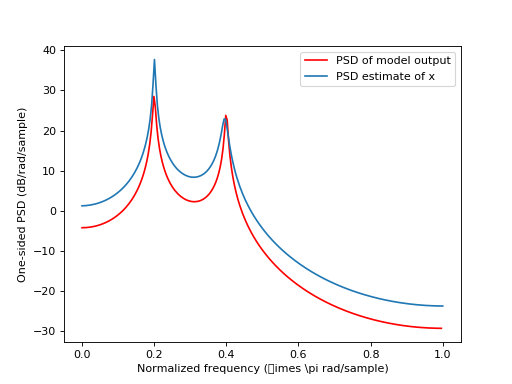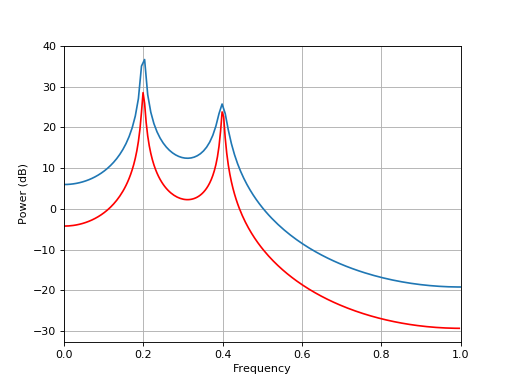4.2. PBURG example¶
Here is another method to estimate an AR model, based on arburg() .
This example is inspired by an example found in Marple book. This is very similar to the previous example, where you will find more explanation (see yule-Walker tutorial).
from pylab import log10, pi, plot, xlabel, randn
import scipy.signal
from spectrum import arma2psd, arburg
# Define AR filter coefficients
a = [1, -2.2137, 2.9403, -2.1697, 0.9606];
[w,H] = scipy.signal.freqz(1, a, 256)
Hp = plot(w/pi, 20*log10(2*abs(H)/(2.*pi)),'r')
x = scipy.signal.lfilter([1], a, randn(256))
AR, rho, ref = arburg(x, 4)
PSD = arma2psd(AR, rho=rho, NFFT=512)
PSD = PSD[len(PSD):len(PSD)//2:-1]
plot(linspace(0, 1, len(PSD)), 10*log10(abs(PSD)*2./(2.*pi)))
xlabel('Normalized frequency (\times \pi rad/sample)')
(Source code, png, hires.png, pdf)
(Source code, png, hires.png, pdf)

